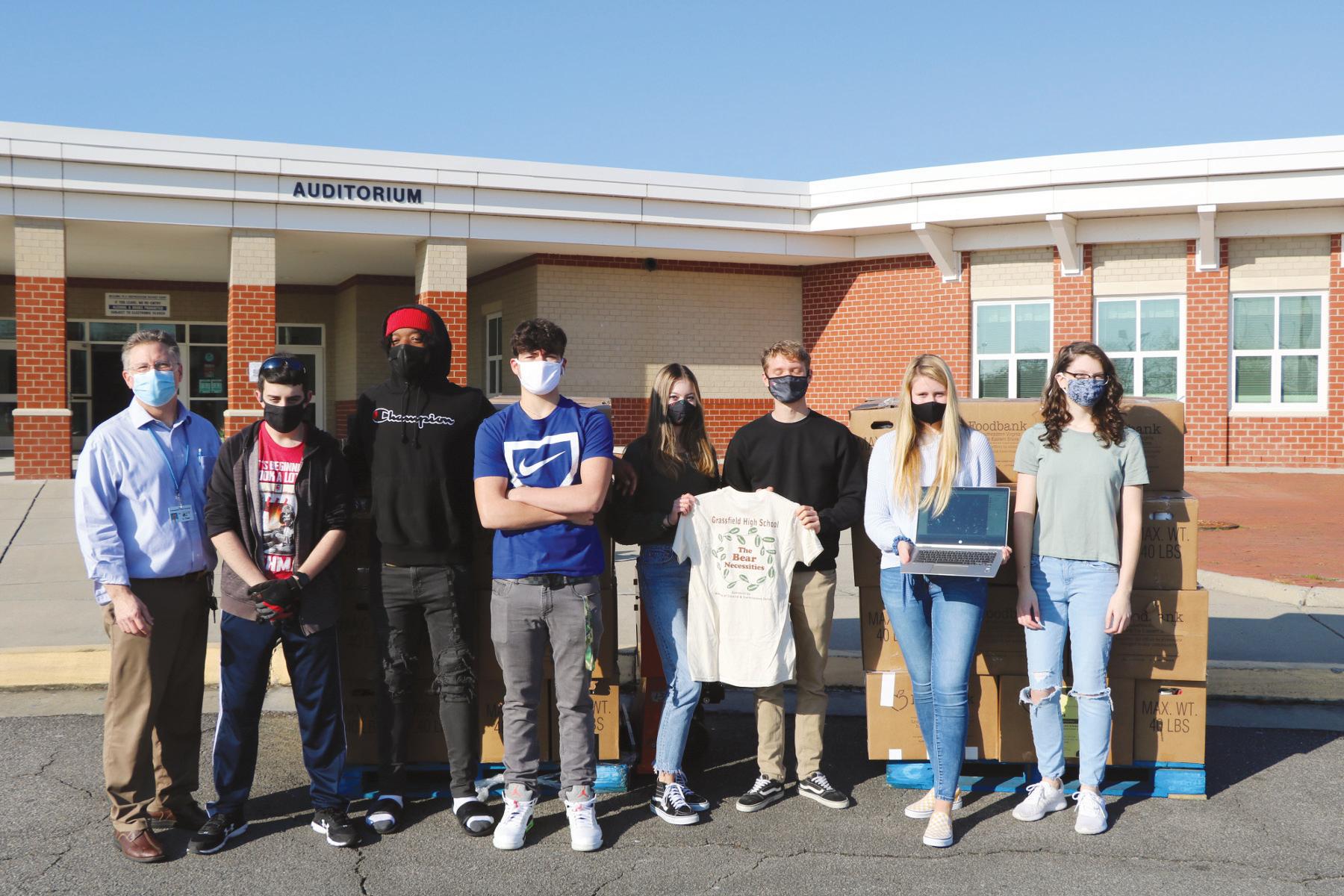14
Austin South Asian | May 2021
Teachers and Their Students Remain Resilient Amidst the Pandemic Throughout this past year, teachers have been tasked with conducting hybrid or fully remote learning while guiding students through a global pandemic and nationwide social injustices. Amid such challenges, teachers have developed unique ways to stay resilient, while also driving engagement for students. One program in particular, The Lead4Change Student Leadership Program, provides free leadership curriculum along with opportunities for students to pilot service-learning projects through collaboration, critical thinking, problem-solving and reflection. Teachers are using tools like this program to encourage students in making an impact in their local communities. Treena Edwards, a teacher at Lithia Springs High School in Lithia Springs, Ga., explained how
Lead4Change allowed her to gain a greater connection with her students.
to do what I could to make a difference,” says Edwards. “Our high school is a Title I school where a
low on supplies.” To support their community, Edwards’ students created a food drive to increase donations to local food banks. At Grassfield High School in Chesapeake, Va., teacher David Thaw explained the whirlwind of teaching during the pandemic and how he ultimately rose to the challenge and learned from his students. “Most of us felt like we were jumping out of a plane and hoped our parachute would work when pulled,” says Thaw. “But what happened was amazing. As much grace I showed my students, they showed me an equal amount of grace and more.”
“When I got back to school and discovered there were some students who were homeless, without food and clothes, and hurting emotionally, it opened my eyes that I needed
large majority of the student population is on free or reduced lunch. We have a food bank located in the school to help those students. Ever since the pandemic began, it’s been
Among the many instructional obstacles of the past year, Education Week found that the two most prominent challenges for educators during the pandemic are motivat-
Tips From A Doctor Who Survived Covid-19 No matter how strictly you follow the rules, those with firsthand experience know that anyone can get COVID-19. “Given my role helping shape COVID-19 policies and procedures since the pandemic surfaced, I know the rules better than most: wear a mask, limit social gatherings, stay six feet apart and so on,” says Dr. Gina Conflitti, chief medical officer for Medicare products at Cigna, one of the nation’s largest health care insurers. “Like many others, I did my best to follow the safety guidance. Yet, in late November 2020, I contracted the virus and faced months of recovery.” While Dr. Conflitti hopes this doesn’t happen to others, she offers the following advice to those who do contract COVID-19: • COVID-19 impacts everyone differently. There are those who cruise through COVID-19 with no symptoms while others have mild symptoms. Some people literally fight for their lives. Don’t expect to have the same experience as oth-
ers, and be sure to communicate with your doctor about the best treatment approach. • Don’t get caught in the blame
COVID-19 is humbling, and even active, independent people may suddenly need help with normal daily activities, like getting groceries and medicines. People want to help, so don’t hesitate to ask so you can concentrate on recovering. • Take care of your mental health. COVID-19 is isolating and can cause depression and anxiety. Stay connected with friends and family safely via phone or video calls. Talk to a professional if things become too difficult to manage on your own. You may have access to behavioral health support through your medical insurance or Medicare plan.
game. Once you contract COVID-19, there’s a tendency to blame yourself. Or you might blame others for infecting you. Many never find out how they were exposed. While contact tracing is important, don’t waste time blaming yourself or others. Save your energy for recovery. • Don’t be afraid to ask for help.
• Listen to your body. There’s no good time to get sick. Nevertheless, it’s important to listen to your body before returning to work, school and daily activities. Don’t rush it. Prepare by eating healthy, getting enough sleep, drinking plenty of water, taking vitamins or supplements if your doctor recommends and reducing stress.
• Pay it forward. Even with all the bad things COVID-19 brings, it’s also revealed some of the best aspects of humanity. Pay kindness forward by showing gratitude to clinicians, teachers, restaurant and grocery store workers and others who courageously give their best so our lives are better during this pandemic. • Get the vaccine. Take control of your health by getting vaccinated. Follow your local health department news, and get your COVID-19 vaccination as soon as medically approved. It’s available at no cost and critical to ensuring your safety and the safety of others. For Cigna’s COVID-19 resources, visit cigna.com/coronavirus. “It’s been a difficult time for all of us, but I’m confident the most challenging days are behind us. Stay safe, follow safety procedures and get vaccinated. The only way we can move forward is if we do it together,” says Dr. Conflitti. (StatePoint)
ing students (77%) and meeting the needs of diverse learners (58%). Teacher Holly Hartman of Eastern Lebanon County High School in East Lebanon, Pa., was able to reignite her passion for teaching. “Developing connections virtually is so difficult, but Lead4Change gave me and my students a reason to be in class,” says Hartman. “It brought purpose to the work my students were doing, and they liked knowing they could still make a difference in their community, despite the challenges the pandemic posed.” This program has allowed educators to reinforce students’ immense potential to make a difference on important issues facing their communities. “We are inundated with research reports advising Gen Z students are clueless about societal concerns,” explains Kenia Brown, a teacher at Plantation Middle School in Plantation, Fla. “I found just the opposite. Students were very aware of current events and civic mindedness and thanks to Lead4Change, I actually feel much better about the direction of society.” Brown’s students formed the “Motivational Mondays” team, which promoted positive interpersonal communication within their community by spreading words of kindness on Mondays. The students’ efforts were awarded by Lead4Change as one of the grand prize-winning teams of the Lead4Change Challenge, earning a $10,000 grant for the nonprofit of their choice. However, the students’ impact on the local community and leadership skills acquired were rewards in of themselves. For more information about the Lead4Change Student Leadership Program, visit lead4change.org. During one of the most challenging years in recent history, teachers and students are remaining resilient and driving positive change by being leaders in community service. (StatePoint)











